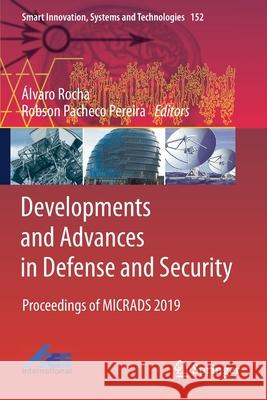Developments and Advances in Defense and Security: Proceedings of Micrads 2019 » książka
topmenu
Developments and Advances in Defense and Security: Proceedings of Micrads 2019
ISBN-13: 9789811391576 / Angielski / Miękka / 2020 / 534 str.
Developments and Advances in Defense and Security: Proceedings of Micrads 2019
ISBN-13: 9789811391576 / Angielski / Miękka / 2020 / 534 str.
cena 805,10
(netto: 766,76 VAT: 5%)
Najniższa cena z 30 dni: 771,08
(netto: 766,76 VAT: 5%)
Najniższa cena z 30 dni: 771,08
Termin realizacji zamówienia:
ok. 16-18 dni roboczych.
ok. 16-18 dni roboczych.
Darmowa dostawa!
Kategorie:
Kategorie BISAC:
Wydawca:
Springer
Seria wydawnicza:
Język:
Angielski
ISBN-13:
9789811391576
Rok wydania:
2020
Wydanie:
2020
Numer serii:
000405987
Ilość stron:
534
Waga:
0.77 kg
Wymiary:
23.39 x 15.6 x 2.87
Oprawa:
Miękka
Wolumenów:
01
Dodatkowe informacje:
Wydanie ilustrowane











